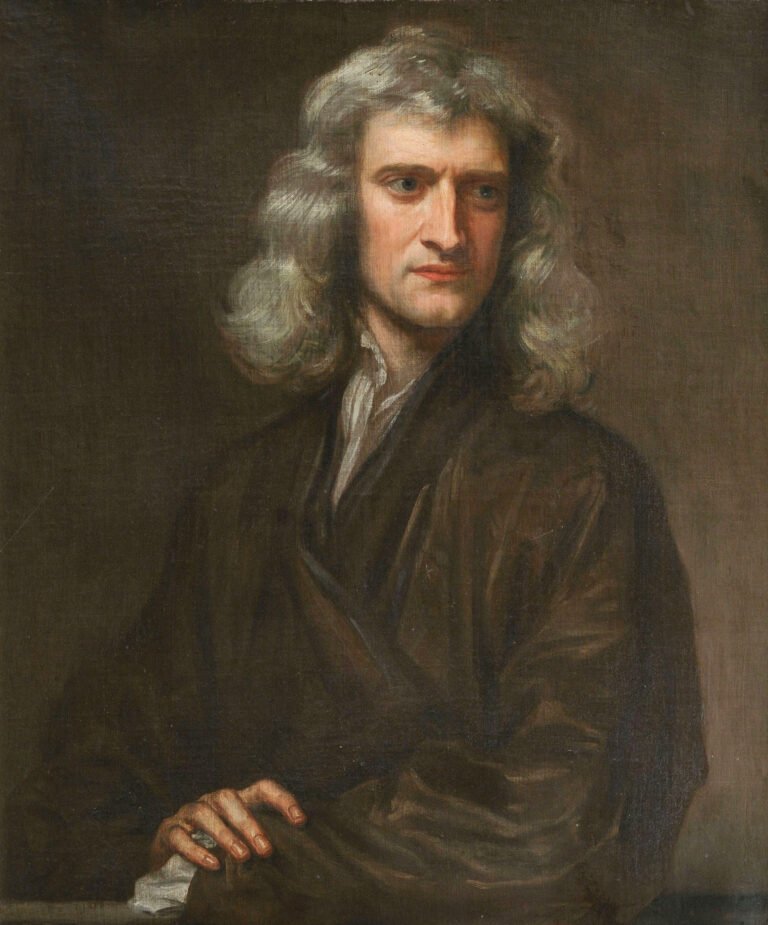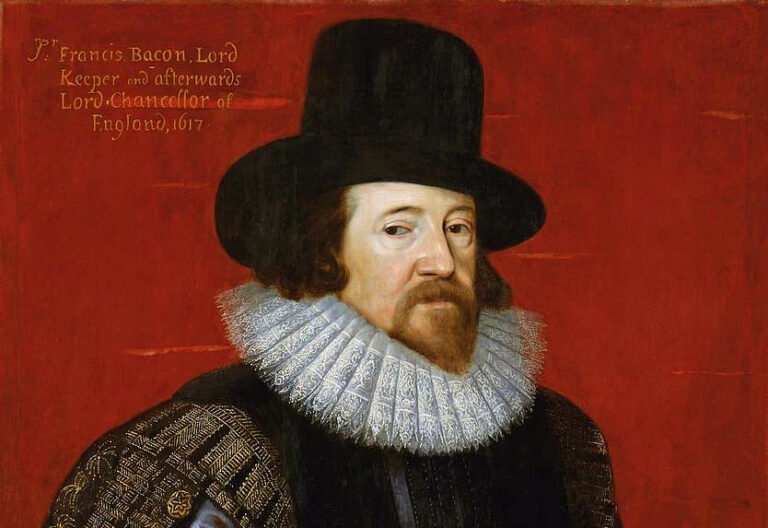Christopher Marlowe was a fascinating figure of the English Renaissance. He was a playwright, poet, and a contemporary of Shakespeare.
Marlowe’s life was as dramatic as his works. Born in 1564, he quickly rose to fame with his powerful plays. His writing style was bold and innovative, capturing the imagination of audiences. Some believe he influenced Shakespeare. Yet, Marlowe’s life was cut short under mysterious circumstances at just 29.
Despite his brief career, his impact on literature remains significant. His works like “Doctor Faustus” and “Tamburlaine” continue to be studied and performed today. Marlowe’s legacy is a blend of talent, intrigue, and untimely death. This blog delves into his life, his works, and his lasting influence on literature.

Credit: www.britannica.com
Early Life And Education
Christopher Marlowe, a prominent playwright of the Elizabethan era, had a life full of intrigue and talent. His early life and education played a crucial role in shaping his literary career. Let’s delve into the key aspects of his formative years.
Birth And Family Background
Christopher Marlowe was born in Canterbury, England, in 1564. He was the son of John Marlowe, a shoemaker, and Catherine Arthur. Marlowe grew up in a modest household but showed early signs of brilliance. His family likely valued education, which set the stage for his later achievements.
Academic Pursuits
Marlowe attended the King’s School in Canterbury, where he received a solid foundation in classical studies. His academic excellence earned him a scholarship to Corpus Christi College, Cambridge. At Cambridge, Marlowe studied literature, philosophy, and theology.
His time at Cambridge was marked by exceptional academic performance. Marlowe earned his Bachelor of Arts degree in 1584. He continued his studies and received a Master of Arts degree in 1587. His education at Cambridge not only honed his intellectual skills but also exposed him to various literary influences.
Theatrical Beginnings
Christopher Marlowe’s journey into the world of theater marked a significant era in English literature. His talent for storytelling and dramatic expression set him apart from his contemporaries. Marlowe’s early works and the influences that shaped his style contributed greatly to his success as a playwright.
Initial Works
Marlowe’s initial works were both bold and innovative. His first play, “Dido, Queen of Carthage”, showcased his ability to blend mythological themes with human emotion. This early success was followed by “Tamburlaine the Great”, a play that broke new ground with its powerful narrative and complex characters.
Through these works, Marlowe established himself as a prominent figure in the Elizabethan theater. His use of blank verse and dynamic storytelling captivated audiences and critics alike.
Influences And Inspirations
Marlowe drew inspiration from a variety of sources. Classical literature and contemporary politics deeply influenced his writing. His education at Cambridge exposed him to the works of ancient Greek and Roman writers. These classical elements are evident in his plays.
Additionally, Marlowe’s works often reflected the turbulent political climate of his time. He used his plays to comment on power, ambition, and human nature. This bold approach resonated with audiences and contributed to his lasting impact on English drama.
His contemporaries, like Thomas Kyd and William Shakespeare, also inspired him. Marlowe’s innovative style and thematic depth paved the way for future playwrights, leaving an indelible mark on the world of theater.
Major Works
Christopher Marlowe was an English playwright and poet of the Elizabethan era. He was known for his powerful plays and beautiful poetry. His works left a lasting mark on English literature. Let’s explore some of his major works.
Doctor Faustus
Doctor Faustus is one of Marlowe’s most famous plays. It tells the story of a scholar who makes a deal with the devil. Faustus gains magical powers but loses his soul. This play explores themes of ambition, power, and the supernatural. The character of Faustus is complex and tragic, making the play a timeless classic.
Tamburlaine The Great
Tamburlaine the Great is a play in two parts. It is based on the life of Timur, a Central Asian conqueror. The play depicts Tamburlaine’s rise from a shepherd to a powerful ruler. Marlowe portrays him as a ruthless and ambitious leader. The play is known for its poetic language and dramatic scenes.
| Title | Theme | Main Character |
|---|---|---|
| Doctor Faustus | Ambition, Power, Supernatural | Faustus |
| Tamburlaine the Great | Ambition, Conquest, Ruthlessness | Tamburlaine |
Literary Style
Christopher Marlowe was a master of words. His works stand out for their powerful language and intricate narratives. He used a unique approach that set him apart from his contemporaries. This section delves into his literary style and its key elements.
Use Of Blank Verse
Marlowe’s use of blank verse was revolutionary. Blank verse means unrhymed lines of iambic pentameter. This style gave his characters a natural rhythm. It made their speech sound more lifelike. Marlowe’s blank verse was fluid and expressive. It allowed for emotional depth and flexibility in dialogue.
His famous work, “Doctor Faustus,” showcases this technique. The characters’ speeches flow naturally. The lack of rhyme adds a sense of realism. Readers feel the intensity of each scene. Marlowe’s blank verse influenced many playwrights, including Shakespeare.
Themes And Motifs
Marlowe’s plays explore deep themes. Power, ambition, and human desire are common. These themes are timeless. They resonate with audiences even today. In “Tamburlaine,” the theme of ambition is central. The protagonist’s rise to power is relentless.
Religion and morality often appear in his works. “Doctor Faustus” examines the conflict between good and evil. Faustus’ quest for knowledge leads to his downfall. Marlowe’s exploration of complex themes adds layers to his stories. His motifs, like the tragic hero, create memorable narratives.
Marlowe’s literary style has left a lasting impact. His use of blank verse and exploration of themes set him apart. His works continue to be studied and admired. His influence on English literature is undeniable.
Controversies And Conflicts
Christopher Marlowe, a celebrated playwright, was known for his immense talent. Yet, his life was filled with controversies and conflicts. These issues often overshadowed his creative achievements. Let’s dive into some of the most notable controversies surrounding Marlowe.
Accusations Of Heresy
Marlowe faced serious accusations of heresy during his life. Some believed he was an atheist, which was a grave offense. Here are some key points:
- Rumors of atheism: Many thought Marlowe denied the existence of God.
- Blasphemous remarks: He allegedly made statements against religious teachings.
- Incriminating evidence: Authorities found papers that hinted at heretical ideas.
These accusations had serious implications. In those times, heresy was punishable by death. Marlowe had to tread carefully, balancing his thoughts and public perception.
Political Intrigues
Marlowe’s life was also marked by political intrigues. His involvement in these matters was both direct and indirect. Consider the following points:
- Spy activities: Some believed Marlowe worked as a spy for the government.
- Political connections: He had ties with influential political figures.
- Secret missions: There were rumors of Marlowe undertaking covert operations.
These political involvements added layers of complexity to Marlowe’s life. They contributed to his mysterious persona, making him a figure of endless speculation.

Credit: en.wikipedia.org
Mysterious Death
Christopher Marlowe, a playwright of the Elizabethan era, met a tragic and mysterious end. His death in 1593 has sparked many theories and speculations. The circumstances surrounding his demise continue to intrigue scholars and history enthusiasts alike. Let’s delve into the enigma of Marlowe’s untimely death.
Circumstances And Theories
The events leading to Marlowe’s death remain shrouded in mystery. On May 30, 1593, Marlowe was killed in Deptford, London. Official records state that he was involved in a brawl. Ingram Frizer, his alleged killer, claimed self-defense. Marlowe was only 29 years old.
Several theories have emerged about his death:
- Political motives: Some believe Marlowe was a spy for the government. His death might have been an assassination.
- Religious tensions: Marlowe’s atheism and controversial writings could have made him enemies.
- Personal vendettas: The brawl might have been a cover for a personal grudge.
The true reason remains unknown. Theories continue to fuel debates and discussions.
Impact On Legacy
Marlowe’s mysterious death has had a significant impact on his legacy. It added an air of intrigue to his already remarkable life. Scholars often speculate on what he might have achieved had he lived longer.
His works, such as “Doctor Faustus” and “Tamburlaine,” gained renewed interest. The mystery of his death makes these plays even more captivating. Marlowe’s influence on later writers, including Shakespeare, is widely recognized.
| Aspect | Impact |
|---|---|
| Literary influence | Inspired many writers, including Shakespeare |
| Public interest | Intrigue surrounding his death increased interest in his works |
| Historical significance | His death remains a topic of scholarly debate |
Marlowe’s sudden demise contributed to his mystique. It ensured his place in literary history. His works and life continue to inspire and intrigue.
Legacy And Influence
Christopher Marlowe, a prominent figure in English literature, has left an indelible mark on the world of drama and poetry. His work during the Elizabethan era has influenced countless playwrights and continues to be studied and admired. Let’s explore the lasting legacy and influence of Marlowe on drama and future writers.
Impact On Elizabethan Drama
Marlowe’s plays introduced a new level of depth and complexity. His use of blank verse set a standard for poetic drama. Many of his characters, such as Doctor Faustus and Tamburlaine, embody human ambition and tragedy.
His bold themes and dramatic techniques challenged the norms. This pushed the boundaries of what was acceptable on stage. Marlowe’s influence can be seen in the works of his contemporaries, including William Shakespeare.
Inspiration For Future Playwrights
Marlowe’s innovative style inspired future generations of playwrights. His fearless exploration of controversial topics encouraged others to take risks in their writing.
The table below highlights some key areas where Marlowe’s influence is evident:
| Area of Influence | Examples |
|---|---|
| Blank Verse | Adopted by Shakespeare, Jonson |
| Character Complexity | Hamlet, Macbeth |
| Themes of Ambition | Faustus, Richard III |
Marlowe’s fearless approach to drama and poetry has left a lasting legacy. His work continues to inspire and challenge writers to this day. By pushing creative boundaries, he paved the way for a new era of storytelling.
Comparisons With Contemporaries
Christopher Marlowe was a prominent figure in the Elizabethan era. His works often draw comparisons with those of his contemporaries. Two of the most notable comparisons are with William Shakespeare and the unique contributions Marlowe brought to literature.
Marlowe Vs. Shakespeare
Christopher Marlowe and William Shakespeare are often compared for their literary genius. Both were playwrights in the same era, and their works are still celebrated today.
One key difference lies in their writing styles. Marlowe’s writing is known for its mighty lines and powerful characters. In contrast, Shakespeare’s works are admired for their complex plots and poetic language.
Here is a quick comparison:
| Aspect | Marlowe | Shakespeare |
|---|---|---|
| Writing Style | Bold and Powerful | Complex and Poetic |
| Character Development | Strong, Dynamic Characters | Multi-dimensional, Evolving Characters |
| Popular Works | Doctor Faustus, Tamburlaine | Hamlet, Romeo and Juliet |
Marlowe’s Unique Contributions
Marlowe made several unique contributions to literature. He is credited with popularizing blank verse in English drama. This was a significant departure from the rhymed verse used by many of his predecessors.
Another contribution is his portrayal of strong, ambitious characters. Marlowe’s characters often challenge authority and seek power. This was a new and bold move in Elizabethan drama.
Key contributions include:
- Blank Verse: Marlowe used this to create a natural flow in dialogues.
- Ambitious Characters: His characters are often driven by ambition and power.
- Tragic Heroes: Marlowe’s protagonists are complex and often face tragic ends.
Marlowe’s influence can still be seen in modern literature and drama. His bold style and powerful characters set a new standard in English literature.

Credit: poemanalysis.com
FAQs
Who Was Christopher Marlowe?
Christopher Marlowe was an English playwright, poet, and translator of the Elizabethan era. He is best known for his tragic plays, including “Doctor Faustus” and “Tamburlaine. ” Marlowe’s work had a significant influence on William Shakespeare.
What Are Christopher Marlowe’s Famous Works?
Christopher Marlowe’s famous works include “Doctor Faustus,” “Tamburlaine,” “The Jew of Malta,” and “Edward II. ” These plays are known for their complex characters and innovative use of blank verse.
How Did Christopher Marlowe Die?
Christopher Marlowe died in a mysterious stabbing incident in 1593. The circumstances of his death are debated, with theories ranging from a bar brawl to political assassination.
What Is Christopher Marlowe’s Writing Style?
Christopher Marlowe’s writing style is characterized by his use of blank verse, dramatic dialogues, and complex characters. His works often explore themes of ambition, power, and the human condition.
Conclusion
Marlowe’s work continues to fascinate readers today. His plays are timeless classics. His influence on literature is profound and lasting. Marlowe’s life, though short, left a big impact. His bold ideas and dramatic flair remain unmatched. Students and scholars still study his works with great interest.
His contribution to English literature is undeniable. Marlowe’s legacy lives on through his powerful words. Discovering his plays can be both enjoyable and enlightening. Dive into Marlowe’s world and experience his genius.








